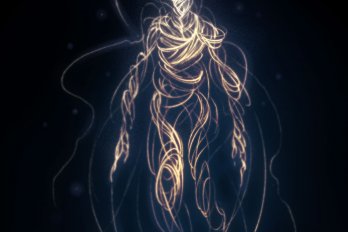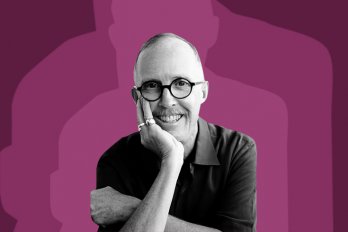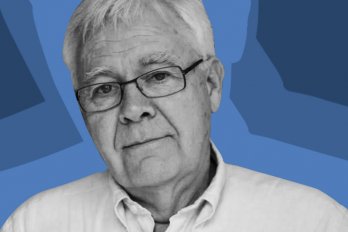Last spring, I ran into an acquaintance outside our local YMCA. She’s an actor and screenwriter married to a musician; I’m a writer. We exchanged the usual anxious banter about working in creative fields: the shrinking budgets, the unpaid invoices, the fears about getting old and irrelevant.
Listen to an audio version of this story
For more audio from The Walrus, subscribe to AMI-audio podcasts on iTunes.
Then she told me she was thinking about learning plumbing—a useful pursuit in the event, she half-joked, of environmental collapse. I was alarmed and impressed. For those of us in the arts, the idea of abandoning one’s life’s work to do something perceived as more valuable was, until recently, an ongoing joke: What use would we be, with our guitars and fountain pens, in any kind of crisis? “But we’re Fredericks!” I exclaimed. “We don’t have to know plumbing!”
I was referring to Frederick, the classic 1967 children’s book by Leo Lionni. In it, a “chatty family of field mice” prepares for winter. They all pitch in, gathering berries and nuts, except for Frederick, who engenders low-grade scorn for lolling around and saying: “I do work . . . I gather colours, for Winter is gray!” He gathers words, too, while the other mice are hauling corncobs twice their weight. Later, after all the food is eaten and the mice seem ready to kill one another, Frederick gently suggests that his brethren kick back and listen. He holds court, describing in detail the sun and the world beyond the stone wall in which they live. He contributes stories. Enraptured, the mice forget their near starvation and forgive Frederick’s slacker ways, calling him a poet, to which he responds, blushing: “I know it!”
“Oh, Frederick,” my acquaintance said, rolling her eyes. “Fuck Frederick.”
I remembered this moment recently from inside my own home, with my self-isolating family breathing irritatingly nearby. My new novel had just been released at the end of March. I worked on it for five years, supplementing my small advance with writing and teaching jobs. Of course, releasing a novel during a pandemic means there’s no book launch; the readings have been cancelled, interviews banked for later. In the meantime, I’m expected to prove my utility through self-promotional videos and tweets, anything to help sell copies. But I feel powerless, skinless. I know this is a minor strain of suffering, a blip measured against that of the paramedics who entered the home of an elderly neighbour one recent morning. Still, it’s painful. My novel’s arrival at this moment has seemingly thrust my uselessness into the light.
Artists have always had to ward off the impression that we’re the tribe’s lollers and dilettantes. Our compensation often reflects that perception: a recent government-funded report pegged the median income of artists at $24,300—that’s 44 percent below average. The value, artists hope, isn’t in the dollars but in the emotion generated, the reflection forced, the realignment of the inner self that might occur in one’s audience. Those payoffs are hard to quantify, and in a crisis like this one, what’s valuable is one’s utility, one’s productivity. It helps to know plumbing.
When the US government announced $75 million (US) of emergency funding for the National Endowment for the Arts, a former governor tweeted, “How many more people could have been helped with this money?”—the implication being that artists aren’t real workers struggling like everyone else. Musicians and actors and writers have stepped up charitable efforts during this crisis, donating money and talents to help food banks and health care workers. The post-hardcore band Thursday turned its concert T-shirts into face masks. Useful, certainly, but isn’t art, in and of itself, contribution enough?
My novel’s arrival at this moment has seemingly thrust my uselessness into the light.
I still want to be a Frederick, to move readers even if it feels awkward or unseemly to release a book in the middle of a disaster. In these jagged, brutal moments, we seek the unreal for comfort and synthesis. It’s why we’re watching the movie Contagion, reading the apocalyptic novel Station Eleven, and playing rem’s “It’s the End of the World as We Know It (And I Feel Fine)” on repeat. Art provides a gasp of air, a road map out of the disaster. I found my own route through Matthew Arnold’s poem “Dover Beach”: “Sophocles long ago / Heard it on the Ægean, and it brought / Into his mind the turbid ebb and flow / Of human misery; we / Find also in the sound a thought, / Hearing it by this distant northern sea.” The crisis we’re in isn’t unprecedented, and how comforting, how useful, to see that the poet does know it, as ever.




